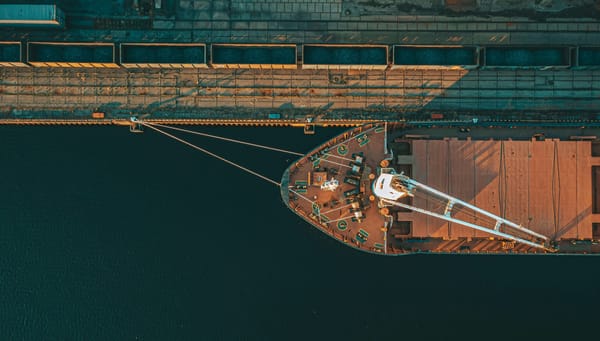New US Sanctions Compliance Warning: What to Know
The Departments of Commerce, Treasury, and Justice are putting the world on notice - US sanctions are not just a domestic issue. Here's what seafood supply chains need to know.

The Departments of Commerce, Treasury, and Justice are putting the world on notice - US sanctions are not just a domestic issue. The joint Compliance Note issued last week is a strongly worded reminder that foreign companies and individuals can face multi-million dollar civil penalties and even criminal prosecution for violations. While compliance notes from US agencies are not new, they can signal a coming uptick in enforcement activities targeting the highlighted areas of concern.
For companies in or working closely with the international seafood supply chain, here are a few items to keep in mind as sanctions compliance takes center stage:
Sanctions Apply to Seafood
The US sanctions certain goods and products from entering the country based on the supplier, sourcing, or manufacturing origin. Other violations include any involvement in providing US-origin goods to a sanctioned country or entity and transactions processed through US banks or with US currency for sanctioned parties can also trigger liability. For the seafood sector, current import sanctions cover:
- Seafood caught in Russia or by Russian-flagged vessels overseas
- Seafood caught/processed in North Korea or with North Korean labor
- Seafood caught/processed using Uyghur Labor
- Seafood caught by a sanctioned fishing vessel
- Business ties to Specially Designated Nationals (individuals or companies)
Enforcement is Active
Companies used to environmentally-focused regulations might be shocked by the severity of financial and criminal penalties associated with sanctions violations. Recent multi-million dollar penalties against companies based in Australia, the UAE, Latvia and other countries for sanctions violations include omitting references to sanctioned parties in shipping or other supply chain documentation.
Violating a sanction can include omitting references to sanctioned parties in transactions, re-exporting U.S.-origin goods to sanctioned destinations such as Russia, North Korea or Iran, or processing payments through the U.S. financial system involving sanctioned entities. Over 150 individual fishing vessels have been sanctioned as well from China alone.
Importantly, ignorance of sanctions is not a defense. The Department of Justice can bring criminal charges for willful violation of sanctions against foreign companies and individuals, and the US Treasury Department has broad authority to pursue civil cases against foreign entities and individuals on a "strict liability" basis - meaning the entity does not need to intentionally or knowingly violate sanctions for penalties to apply. In their words:
...a person subject to U.S. jurisdiction may be held civilly liable even if such person did not know or have reason to know that it was engaging in a transaction that was prohibited under sanctions laws and regulations...
Compliance is Manageable
In its notice, the US advises companies to have comprehensive compliance programs, strong supply chain controls, counterparty screening, and to self-disclose potential violations. Implementing rigorous, comprehensive trade compliance programs is now a must-have capability, not an optional nicety. Seafood companies operate in a highly globalized sector with complex, evolving requirements, making automating these compliance processes essential. Constant regulatory changes make manual tracking enormously burdensome and risk-laden.
This is where Goldfish can help. Our software integrates continuously updated IUU vessel lists, sanctions data, documentation and data requirements to enable real-time, automated vetting and due diligence screening. Visit www.goldfish.io to book a demo and discuss how Goldfish can upgrade your operations in record time.





